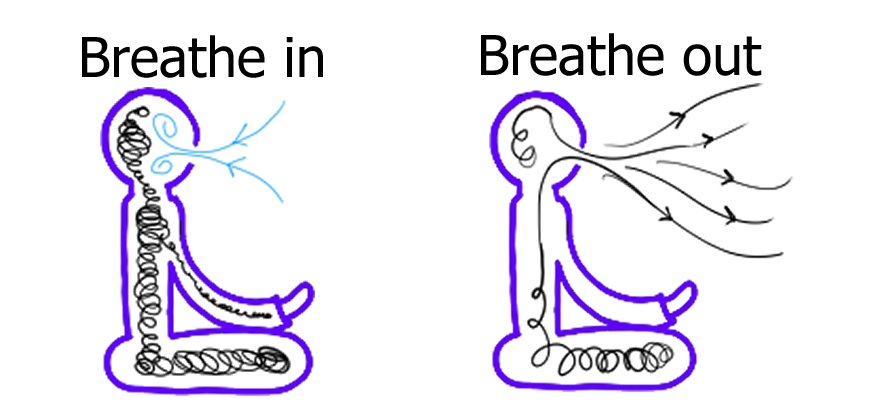I recently spoke with someone who asked me about dealing with emotions while going through a difficult time, and my mentioning my rather simplistic approach to meditation made me think “Hmm maybe I should start writing up some of this stuff”.
For those who don’t know me, I’m not a particularly religious nor spiritual person, so there’s no particularly dramatic notion of meditation that I adhere to. No doubt the meditation done at various religious and spiritual temples have a significantly different and deeper meaning to them, but my understanding is that they serve slightly different purposes in addition to mine.
Why do meditation?
When I was interested in meditation, I didn’t have any particular purpose in mind. However in the end, I’ve realised two benefits of my practice, of which I’ll list as objectives here:
- To empty the mind of thoughts and minimise the number of things that the brain is paying attention to.
- To allow oneself to acknowledge (intrusive) thoughts and feelings in a controlled environment, and reserve the power to act on them.
Once sufficiently practised, the need for focused meditation sessions gradually disappears. Or at least this was the case for me. It’s worth pointing out that I didn’t do this as a regular activity, more as something on-demand. However it can work either way depending on your needs.
Setup
Calm environment. Background music if necessary and if it helps you focus, or eliminate noise in your head. In a nutshell you want to remove or minimise any external stimuli that can randomly interrupt your thoughts.
Be in some kind of resting and/or comfortable position.
What to imagine
Imagine that in your head and/or body is a cloud of black smoke making up your thoughts and bodily feelings. As you breathe slowly and deeply, imagine that you’re taking in fresh clean air, and as you exhale, you’re blowing out that black smoke in your body. Repeat until you feel sufficiently empty. Maintain that empty feeling for as long as you need to, until you’re sufficiently rested/chill.
As you may have realised this is the first of the aforementioned objectives. Of course, achieving said emptiness is not always possible.
The thoughts & feelings that won’t go away
There will be times where you’re stuck with a thought that maybe you’ve tried to bury too deeply and now it’s sprung out, or maybe you’ve got some persistent aching pain in your body, or perhaps a traumatic event has brought out a bunch of emotions. In my experience this is pretty normal.
As you can imagine, this is where I refer to the second of the aforementioned objectives.
For intrusive/random thoughts and fleeting feelings that are best off ignored and not acknowledged:
The analogy that worked for me here is to imagine that while you’re meditating, pretend that you’re relaxing and lying on your back somewhere (e.g. in an open grass field), watching the clouds go by. Those clouds are those thoughts & feelings that won’t go away. You “can’t” interact with them, but you can acknowledge their existence and then let them float by without entertaining them any further.
For strong emotions, trauma, things that should be addressed:
The strategy that worked for me was pretending these of these feelings are a person (so you can imagine how delighted I was when the movie Inside Out was released). In my head I’d give them a stick figure shape and a colour representing that emotion, and in my head I’d just sit down and talk to them. “What are you feeling? Why are you feeling like this? What can we do about it?”
One added benefit of this approach in my opinion is that it allows me to distance my person/identity from those feelings, and overall it gives me a more conscious choice of whether I want to engage with and/or personify those feelings. Sometimes you have to cry and let it out, because it’s emotionally healthier for your system in the long run.
Long term benefits
I think it’s safe to say that my current calm/chill demeanour was no doubt helped by the practices above, among other things. Rarely am I quick to act on my emotions, and attempting to focus and sort my thoughts from the general cacophony of life is relatively easier to do these days.
In general I think better mental control of one’s faculties is always going to be a positive benefit, but no doubt there may be certain personality types that will struggle with this kind of separation of personal self and their feelings/thoughts.

Be First to Comment